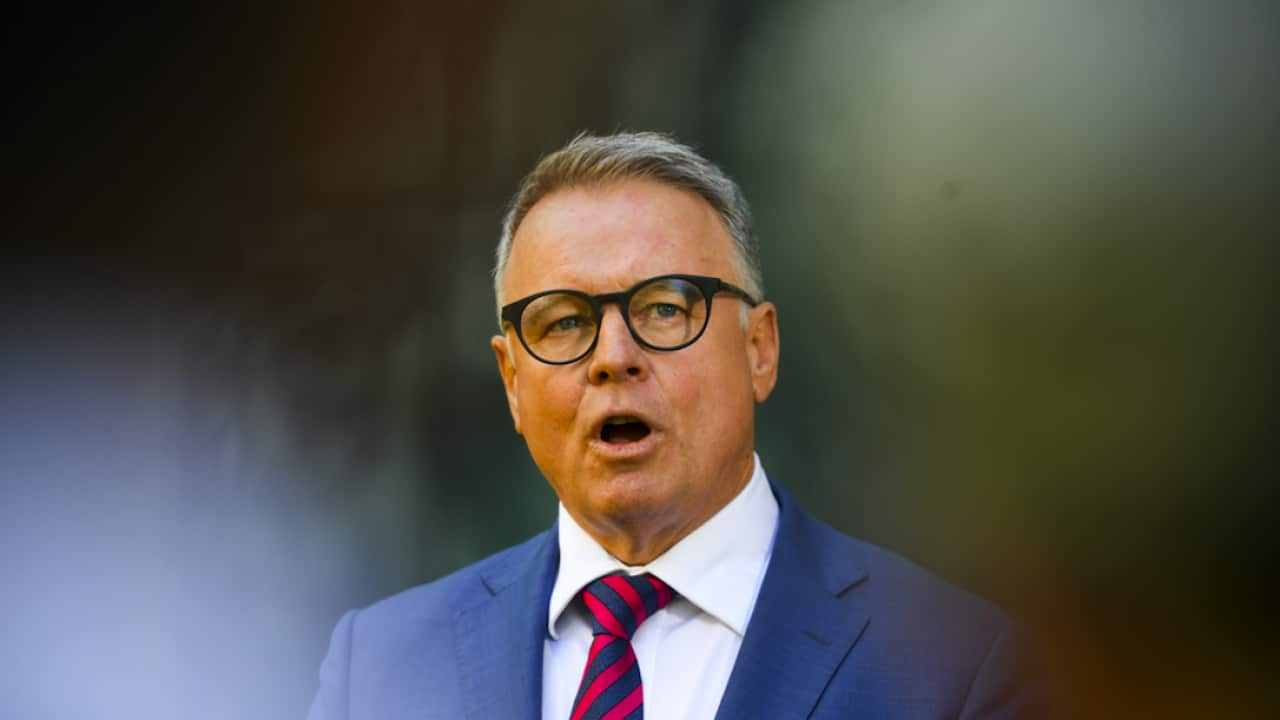Labor MP Joel Fitzgibbon has quit the opposition front bench, saying his party is spending too much time on climate policy at the expense of regional issues.
The Shadow Minister for Agriculture and Resources announced his sudden move to the back bench on Tuesday morning following a long-running division within the party over climate policy.
Mr Fitzgibbon said he would step down immediately, but would continue advocating for regional voters from the back bench.
"I will continue to be a very strong voice on their behalf. And I'll call out policy, including Labor policy, which I don't think is in their interest," he said.
"The Labor Party has been spending too much time in recent years talking about issues like climate change - which is a very important issue - and not enough time talking about the needs of our traditional base."
Labor's Ed Husic has been named to take over the agriculture and resources portfolios, returning the Western Sydney member to a position on the opposition front bench.
Mr Fitzgibbon, an outspoken right-faction MP, has repeatedly urged his party to support gas and coal jobs while speaking out on climate change and energy policies over the past 18 months.
He said he does not intend to contest the party's leadership against opposition leader Anthony Albanese.
"I have no intention of running for the leadership," he said.
"I'd have to be drafted and in the current climate, I'm not confident of that occurring."
Mr Fitzgibbon has said he supports the opposition's net-zero emissions target by 2050, but has warned against adopting ambitious medium-term targets that he thinks would deter voters in regional areas.
Speaking to reporters later on Tuesday, Mr Albanese downplayed tensions within the party when asked about internal division over a medium-term emissions reduction target.
"We have a net zero emissions target by 2050. It will all be there. You'll have plenty of time before the election to transact exactly what it all means" he said.
"What you should be doing is holding this government to account now, that does not have an energy policy in this country."
Mr Fitzgibbon has previously called on his party to consider adopting a "sensible settlement" with the federal government, rather than overreaching on climate policy.
"If you want to act on climate change, the first step is to become the government," he said.
"To become the government, you need to have a climate change and energy policy that can be embraced by a majority of the Australian people."
Earlier this year, Labor committed to the net-zero emissions target by the middle of the century, following concerns being raised the party's climate policy at the last election had deterred some voters in regional areas.
The Labor Party is still developing a medium-term target ahead of this goal, with Mr Albanese saying this will be "consistent" with reaching the target of net zero emissions by mid-century.
Some in Labor have put forward Joe Biden's presidential election as evidence an ambitious climate change agenda can be successful at the polls, but Mr Fitzgibbon has sought to downplay these comparisons.
Mr Fitzgibbon said the pathway to net-zero emissions should be managed and not be consider a "linear" progression.
"As technology kicks in, the effort will reduce. You don't have to be halfway there at the halfway point. " he said.
"Let Scott Morrison govern it. Let's hold him to account and let's take some time to see whether he's on track to meeting the commitment he makes."
Under the Paris Agreement, Australia has committed to reducing its emissions by between 26 and 28 per cent below 2005 levels by 2030.
But the Australian government has resisted adopting a 2050 net-zero emissions target despite this being taken up by allies the United Kingdom, Japan, South Korea and the European Union.


